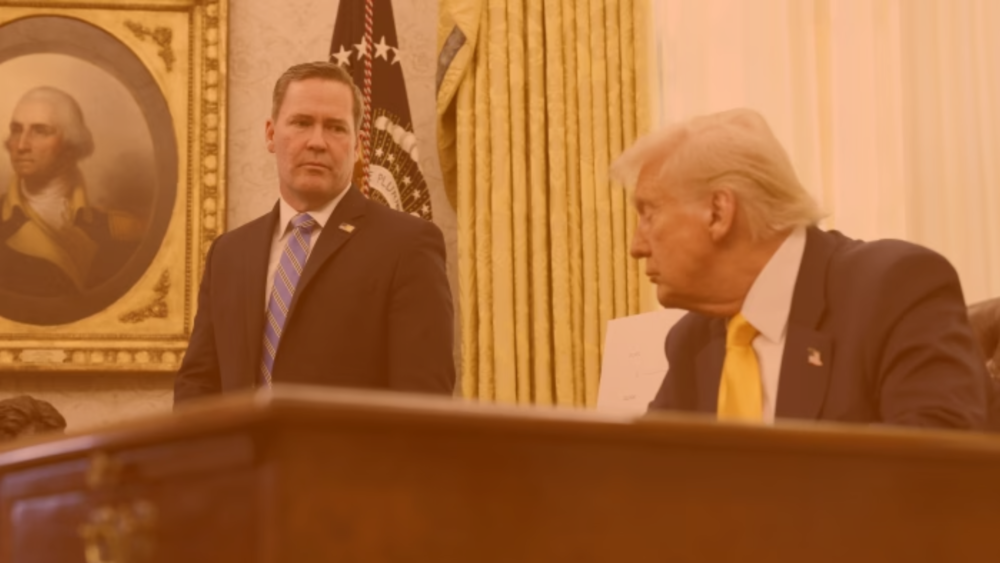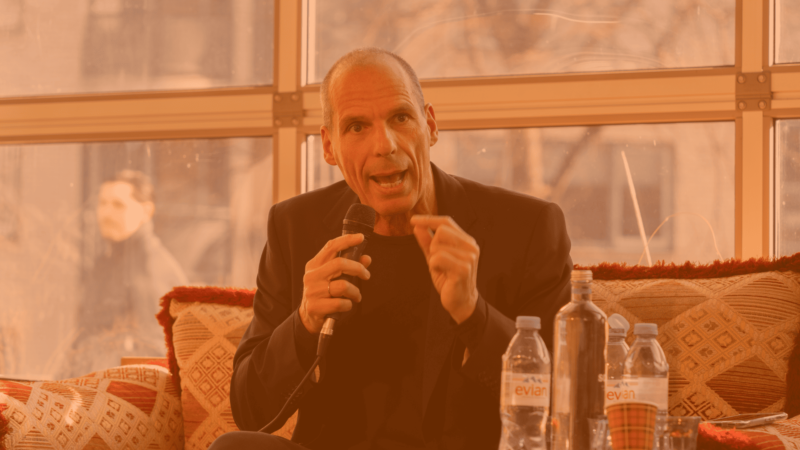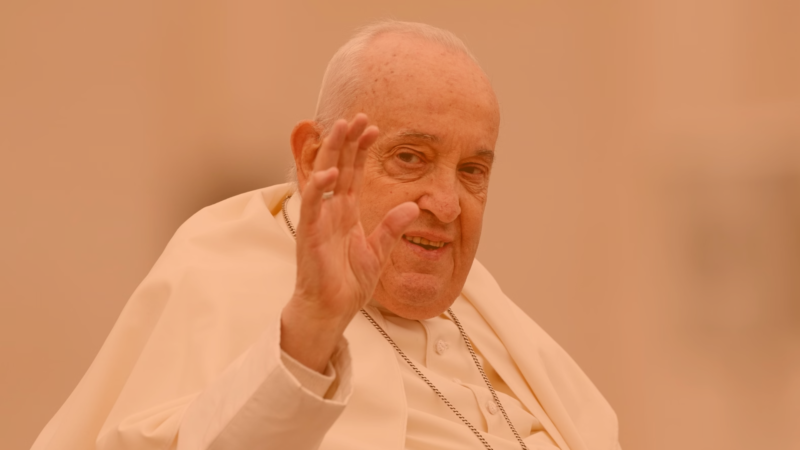Washington was rocked last week by the disclosure United States airstrikes on the Houthi rebel group in Yemen were leaked to a journalist before the attack. What made the disclosure such a scandal is that the leak happened when US government officials mistakenly invited a journalist to their private Signal chat.
The leak, which featured not only attack plans but also senior US officials – including Vice President JD Vance, Secretary of State Marco Rubio, Secretary of Defence Pete Hegseth, and National Security Advisor Mike Waltz – criticising European allies, has raised questions about the reckless nature of leadership in Washington under the Trump administration.
The attack on Yemen
The March 15 attack in Yemen, including in the capital Sana’a (the planning of which was shared in the Signal chat), was the latest salvo in the US war against the rebel group known as the Houthis.
The Biden administration and current Trump administration have authorised airstrikes on Yemen, where the Houthis reside, to deter attacks on container ships passing through the Red Sea by the rebel group who claim to be disrupting commercial ship traffic in solidarity with the Palestinians after Israel began a siege on Gaza shortly after the Hamas attacks on the Nova Music Festival in October 2023. The Houthis, who stopped their attacks during the recent six-week ceasefire between Hamas and Israel, have stated the attacks will resume until Israel’s block on humanitarian aid to Gaza, which includes food and medical supplies, is lifted.
This isn’t the first time the US has been involved in Yemen. Most recently the US (and UK and France), under both the Obama and first Trump administration, provided weapons and logistical support to the Saudi Arabia-backed opposition against the Houthis in Yemen’s Civil War. Western intervention up until now in the conflict has been seen as a proxy war between Iran and Saudi Arabia.
After the October 2023 attacks, however, the Houthis and Israel (with the aforementioned US as well as European support) have exchanged various attacks against each other.
The journalist behind the leak: Jeffrey Goldberg
The journalist who reported the leaked US plans to bomb Yemen was editor-in-chief of The Atlantic Magazine Jeffrey Goldberg. According to Goldberg, he was invited into the Signal chat with a cadre of prominent Trump administration officials without them knowing. The officials, notably JD Vance, Pete Hegseth, and Michael Waltz, provided updates before, during, and after the strike on Yemen.
Outside of this incident, Goldberg is known for his previous outspoken support for the Bush administration’s invasion in Iraq in 2003. More recently, he has been an outspoken critic of the president, most prominently alleging during the first Trump administration that Russia paid “bounties” for American soldiers in Afghanistan. Goldberg later publicly apologised for his Iraq War support and has been scrutinised for lack of evidence to support the Russian bounty claim.
Questions remain on the latter point given Goldberg’s well-known animus towards Trump (and the President’s reciprocal disdain for him). Why was Goldberg invited into this group chat? Who in the Trump administration would have the phone number of such a vociferous critic and accidentally invite them into a private chat with senior US leaders?
A photo has surfaced of Goldberg and Trump’s National Security Advisor Mike Waltz (who Goldberg claims invited him into the Signal chat) together at a film Q&A despite the two saying they don’t know each other. This has led some to suggest a pre-existing “off the record” arrangement in which Waltz would anonymously leak news stories about the Trump administration to Goldberg.
Fallout at home and abroad
Reaction to ‘Signalgate’ has been swift – and ongoing. Washington’s focus has been a cascade of articles, media appearances, and congressional hearings condemning the leak. Waltz has claimed “full responsibility” for the leak and offered the curious explanation that Goldberg was “sucked in” to the Signal group chat. US president Trump has so far stood by Waltz, but his future in the administration remains uncertain.
There’s also speculation about Goldberg’s intent releasing the leaked chat. Was the goal, as some suggest, to highlight disagreements between Vance and Trump?
Less discussed in US news media is that Trump administration leaders in the chat were disparaging historical NATO military allies in Europe. Secretary of Defense Pete Hegseth said Europe’s “freeloading” is “pathetic” and JD Vance said he “hated” to “bail out Europe again”. Further conversation in the chat discussed Europe (and Egypt) providing some “economic gain in return” for US bombing the Houthis in Yemen. These comments came despite the US attack being supported by British “air-to-air refueling support“.
So far, the European response has been concerned but restrained. UK parliament members have questioned intelligence sharing with US allies, but Prime Minister Keir Starmer has commented “unpicking our relations with the US for defense and security is neither responsible nor serious”.
An independent foreign policy
This of course is not the first time the new US administration has criticized traditional European allies.
Vice President Vance criticized both Europe and the UK for stifling free speech. Hegseth has also criticised Europe for not contributing enough to the NATO military alliance. It’s worth noting the latter point is often seen as a negotiating tactic, including by NATO chief Mark Rutte, and that US policy is for Europe to increase purchases of US-made weapons.
Looking past the insults mentioned in the chat from US officials, Europeans should view Signalgate as an opportunity to embark on a new foreign policy. Another excerpt from the leaked chat shows US airstrikes intentionally hitting an apartment building to kill a Houthi leader. The death toll in the strikes – which are ongoing – is now 57.
Especially since the Western-approved destruction of Palestine, and now after the candid talk revealed from the Signal chat logs between senior US officials, Europeans must ask their leaders: how much longer do we want to be part of this alliance?
Do you want to be informed of DiEM25's actions? Sign up here















